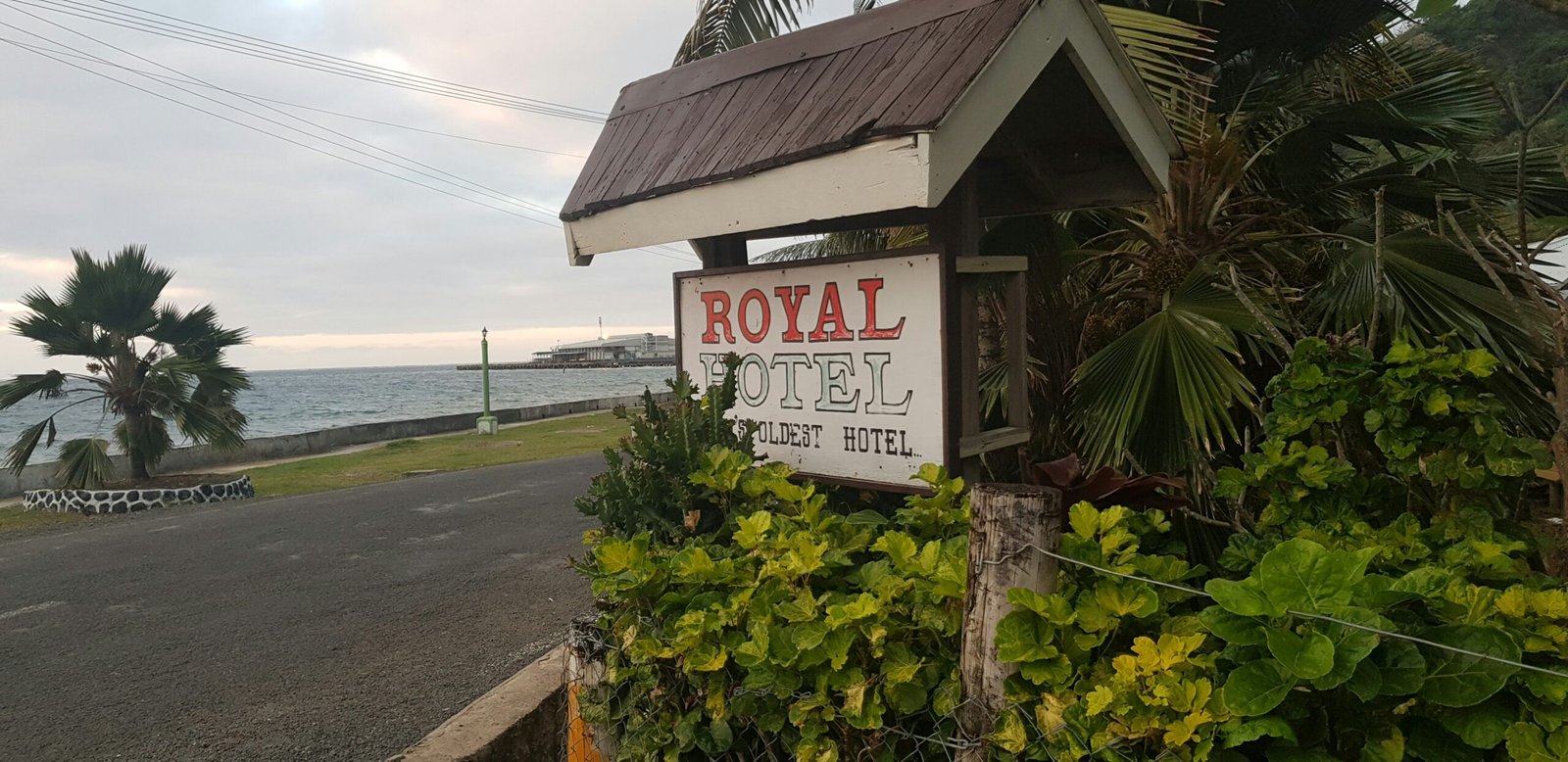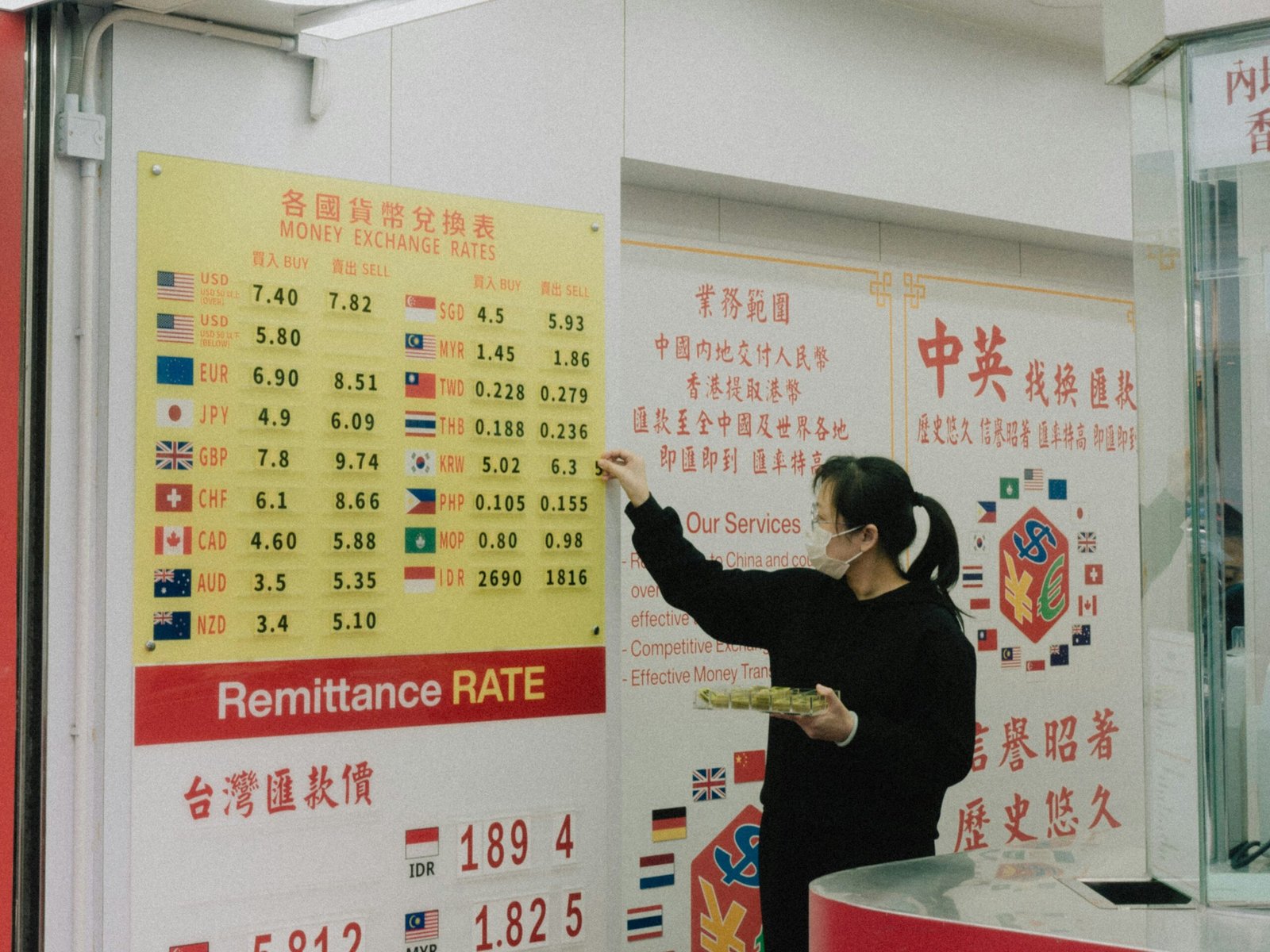
Introduction to Budget Travel
Budget travel has increasingly gained popularity among travelers seeking cost-effective ways to explore new destinations. It encompasses a variety of methods aimed at reducing travel expenses without compromising the overall experience. A key aspect of budget travel is the challenge of finding affordable accommodations, particularly hotels, that are reliable and free from scams. This is crucial for ensuring that a trip remains enjoyable and stress-free.
As the demand for budget-friendly lodging options grows, it is essential to be aware of potential pitfalls associated with booking cheap hotels online. Scams can manifest in diverse forms, such as deceptive advertisements, false reviews, or hidden fees that ultimately lead to inflated costs. Therefore, understanding the basics of budget travel and the strategies to secure affordable stays is paramount for every thrifty traveler.
One of the major advantages of budget travel is the flexibility it offers. Researching and locating affordable hotels enables travelers to allocate more resources to experiences such as dining, activities, and local attractions. Such allocations help to enhance the overall travel experience while staying within a specified budget. Additionally, securing a budget hotel facilitates the exploration of various areas, encouraging visitors to interact with local culture and customs.
In this context, sharing proven tips and techniques for finding cheap hotels without falling victim to scams becomes invaluable. These insights will empower travelers to navigate the complexities of budget accommodation options, ensuring that they can enjoy their adventures with peace of mind. As we proceed through this blog post, it will become evident how informed decision-making can lead to enjoyable experiences without compromising personal savings.
Understanding Hotel Scams
Traveling can be an exhilarating experience, but it is not without its challenges, particularly when it comes to securing accommodations. One such challenge arises in the form of hotel scams, which can lead to financial losses and a disruption of travel plans. Understanding these scams is crucial for travelers seeking to book legitimate hotels.
One of the most common scams involves fake listings. Scammers create fictitious hotel websites featuring enticing images and offers that appear too good to be true. Often, these listings are found on travel aggregator websites or social media platforms. Unsuspecting travelers may book their stay, only to discover upon arrival that the hotel does not exist or that they have been redirected to a completely different property. To avoid falling victim to such scams, it is advisable to cross-check listings on reputable booking websites and read genuine reviews from past guests.
Another prevalent issue arises from unauthorized payment requests. Some scammers pose as hotel staff or travel agents, requesting payment via unusual methods such as wire transfers or cash. Most legitimate hotels request payment through secure credit card transactions when making a reservation. It is essential for travelers to be vigilant and to avoid providing sensitive payment information to anyone that cannot be verified. Additionally, any unusually high deposit fees should raise a red flag regarding the legitimacy of the booking.
Lastly, watch out for phishing schemes that exploit phone calls or emails to gather personal or financial information. Scammers may impersonate trusted organizations in order to extract sensitive data. Always verify the authenticity of any call or message purporting to be from your hotel before divulging any details. By recognizing these types of scams, travelers can take informed steps toward ensuring a safe and enjoyable trip, free from the pitfalls of fraudulent hotel bookings.
Researching the Right Websites
Finding the right travel website or app for hotel bookings can significantly impact a user’s experience while ensuring that they secure the best deals without falling victim to scams. Some of the most reputable platforms include Booking.com, Expedia, and Hotels.com. These sites offer a user-friendly interface, expansive listings, and filters that enable users to streamline their searches based on price, location, and amenities. Each platform has unique features that contribute to a more secure booking experience.
One of the primary advantages of these websites is the incorporation of verified guest reviews. For instance, Booking.com allows users to read firsthand accounts from travelers who have recently stayed at properties, providing essential insights into the quality and reliability of hotels. In addition, these reviews often highlight any potential issues that previous guests encountered, assisting travelers in making informed decisions. Users are encouraged to look for hotels with a substantial number of reviews to assess the consistency of the experiences shared by guests.
Moreover, many travel websites utilize sophisticated algorithms to rank listings based on customer satisfaction and overall value. For example, Expedia includes an option to sort by ratings, which helps users identify highly-rated hotels that may offer competitive prices. Users should also consider utilizing price comparison tools available on these platforms, as they can reveal discounts and last-minute deals that might not be readily apparent when browsing individual hotel websites directly.
Additionally, downloading mobile apps associated with these travel websites further enhances the user experience. Many apps offer exclusive discounts, personalized recommendations, and alerts for price drops, thereby ensuring that users have access to the best possible options for cheap hotel bookings. Travelers should engage with these resources diligently, as thorough research can safeguard against scams and enhance the overall travel experience.
Reading Reviews and Ratings
When searching for affordable accommodations, examining guest reviews and ratings plays a crucial role in identifying reputable hotels. Authentic feedback from previous visitors can provide valuable insights into the quality of service, cleanliness, and overall experience. A high rating does not guarantee a positive stay; hence, it is essential to delve deeper into the details of the reviews.
To start, it is advisable to look for patterns in the feedback. If multiple guests highlight similar issues—such as poor customer service or unclean rooms—it is wise to take these observations seriously. Conversely, an abundance of positive reviews that emphasize the hotel’s affordability and excellent service can indicate a reliable option. Additionally, consider the diversity of the reviewers; feedback from a wide range of guests, including families and solo travelers, can offer a broader perspective on the hotel’s amenities.
In the digital age, fake reviews have become a common issue, often skewing ratings. To discern genuine feedback from fictitious entries, consider the following strategies. Look for reviews that provide specific details about the guest’s experience, including aspects such as the room’s décor, location, and interactions with staff. Vague comments that lack detail might suggest a fraudulent review. Furthermore, be wary of extreme ratings, whether overly positive or excessively negative, as they may not represent a balanced view.
Utilizing verified sources is another effective way to ensure credibility. Websites that emphasize transparency, such as those featuring guest-verified reviews or testimonials, can offer more reliable information. Additionally, checking social media platforms can provide real-time feedback and a sense of community sentiment. By diligently analyzing reviews and ratings before booking a hotel, one can significantly reduce the risk of falling prey to scams, ensuring a satisfactory lodging experience at an affordable price.
Utilizing Social Media for Deals
In today’s digital age, social media platforms have transformed into invaluable resources for travelers seeking budget-friendly accommodations. By harnessing the power of social media, individuals can discover various cheap hotel deals while avoiding potential scams. One effective strategy is to follow travel influencers who specialize in budget travel. These influencers often share exclusive discounts, promotional codes, and firsthand reviews of hotels, providing insights that traditional travel websites may not offer. Their real-time experiences can guide travelers in making informed decisions about where to stay.
Additionally, platforms like Instagram and Twitter are rich with user-generated content showcasing the latest hotel promotions and deals. Hashtags such as #TravelDeals or #CheapHotels can lead to a treasure trove of options, allowing users to compare various accommodations based on price, reviews, and locations. Many hotels also maintain an active presence on these platforms, offering special promos exclusively to their followers, which can lead to significant savings.
Another effective avenue is joining dedicated travel groups or forums on social media platforms such as Facebook or Reddit. These communities often share tips on how to find budget-friendly hotels and post about their recent discoveries, leading members to legitimate deals they may not have found otherwise. Participants in these groups frequently share warnings about potential scams related to hotel bookings, fostering a supportive environment that enhances overall travel safety. By utilizing these strategies and engaging with like-minded travelers, individuals can make the most of social media while uncovering the best hotel deals available. This multifaceted approach ensures a rewarding and economical travel experience, paving the way for future adventures without breaking the bank.
Booking Directly with Hotels
When it comes to finding affordable accommodations, one strategy my close friends emphasize is booking directly with hotels. This method often proves beneficial for several reasons, primarily the potential for securing lower rates, enjoying superior cancellation policies, and fostering valuable relationships with hotel staff.
First and foremost, booking directly can frequently lead to special discounts that third-party travel websites may not offer. Many hotels provide exclusive promotions for guests who reserve through their official website. These discounts can include reduced room rates, complimentary upgrades, or added amenities such as free breakfast or parking. This approach helps guests save money and enjoy enhanced services, making their stay more enjoyable.
Moreover, a distinct advantage of booking directly with hotels is the more favorable cancellation policies. When you reserve a room through a third-party site, the cancellation terms can often be rigid and complex. Conversely, many hotels offer more lenient cancellation options for direct bookings, allowing guests to adjust their plans without incurring hefty fees or losing their deposits. This flexibility is particularly beneficial for travelers whose schedules may change unexpectedly.
In addition to financial and policy benefits, booking directly fosters a personal connection with hotel staff. Establishing rapport can lead to improved customer service experiences. When guests communicate directly with hotel personnel, they often have the opportunity to share specific preferences, which can enhance their stay. Moreover, loyal customers may receive additional perks during future visits, as hotel staff may be more inclined to address their needs and preferences. This relationship-building aspect not only enhances the travel experience but can also create a sense of comfort and familiarity during future stays.
Timing Your Booking Wisely
When it comes to securing affordable accommodation, timing is of the essence. Understanding the dynamics of hotel pricing can considerably enhance the chances of finding cheap hotels. Seasonal trends play a significant role in pricing fluctuations; therefore, being aware of the peak and off-peak seasons can help travelers make informed decisions. For instance, booking a hotel during the offseason—when demand is lower—often results in significant savings, as many hotels offer discounts to attract guests. Conversely, during peak travel periods like holidays or local festivals, prices tend to surge, making it prudent to avoid booking during these times.
In addition to seasonal considerations, travelers should also keep an eye on last-minute deals. Many hotels may reduce their rates as the check-in date approaches in an effort to fill unsold rooms. Websites and apps that specialize in last-minute bookings can be an excellent resource for these opportunities. Moreover, travelers can often take advantage of flash sales and promotional offers that hotels may run sporadically, providing another avenue to score cheap hotels without falling victim to scams.
Loyalty programs also offer significant advantages for those looking to maximize their savings. By joining hotel loyalty programs, travelers can earn points that can be redeemed for future stays, room upgrades, or complimentary services. Many major hotel chains offer exclusive discounts to their members, resulting in cost savings and added value. It’s advisable to sign up for these programs in advance and take note of the specific terms and conditions that may apply. Combining these strategies—timing bookings wisely, leveraging last-minute deals, and utilizing loyalty programs—empowers travelers to secure the best possible rates on accommodation while minimizing the risk of scams.
Communicating with the Hotel
Effective communication with hotel staff plays a critical role in securing accommodations that meet both expectations and budget. When approaching the reservation process, it is advisable to reach out directly to the hotel. This direct line of communication facilitates a clearer understanding of available options and allows potential guests to express specific needs, which can significantly enhance the overall experience.
Before making a reservation, consider discussing your requirements with the hotel representative. This includes details such as room preferences, accessibility needs, and other personalized requests. By clearly communicating these needs, guests can help ensure that the hotel staff can accommodate them appropriately, which may not always be possible through online booking platforms.
Another important aspect of direct communication involves confirming reservation details. After securing a booking, it is prudent to follow up with the hotel to verify that all details are correct. This includes checking the dates of stay, the type of room reserved, and any additional services requested during the booking process. Such verification not only minimizes the risk of miscommunication but also allows guests to address any discrepancies before their arrival.
Additionally, engaging in direct dialogue with hotel staff can sometimes reveal hidden deals or discounts that may not be prominently advertised online. Many hotels offer special rates or packages that are available exclusively through direct inquiries. Informing the staff about your budget can also prompt them to offer options that fit within your financial constraints. This personalized approach to hotel booking is a beneficial practice for those looking to secure affordable accommodations without the risk of falling prey to scams or misleading promotions.
Final Thoughts and Best Practices
In the quest for cheap hotels, vigilance and informed decision-making are paramount. Throughout this blog post, we have explored effective strategies and insights that my close friends utilize to discover budget-friendly accommodations while minimizing the risk of scams. One of the primary takeaways is the importance of thorough research. Before booking any hotel, potential travelers should leverage reputable travel websites and apps that offer user reviews and transparent pricing. Sites that aggregate user-generated content often feature warnings and experiences shared by previous guests, which can serve as valuable indicators of the hotel’s legitimacy.
Another critical practice is to directly contact the hotel to verify the details found online. This step not only establishes a line of communication but also allows travelers to ask specific questions regarding their reservations, payment methods, and any applicable fees. Such direct interaction can greatly reduce the chances of falling victim to misleading information. Moreover, utilizing reliable payment methods can further safeguard against potential fraud. Credit cards often provide added protection when it comes to disputing charges, a feature that can be indispensable in case of issues arising from the booking.
Additionally, being aware of common warning signs of scams is vital. Unusually low prices, limited contact information, or requests for wire transfers should raise red flags. It is also prudent to read terms and conditions carefully and to be cautious of hidden fees that could inflate the overall cost of a stay. Lastly, sharing experiences with friends, family, and online communities can enhance collective knowledge about genuine budget-friendly hotels, creating a support system where travelers can help one another.
By adhering to these best practices and remaining vigilant throughout their booking process, travelers can successfully navigate the landscape of cheap hotels, ensuring a safe and satisfying experience.







